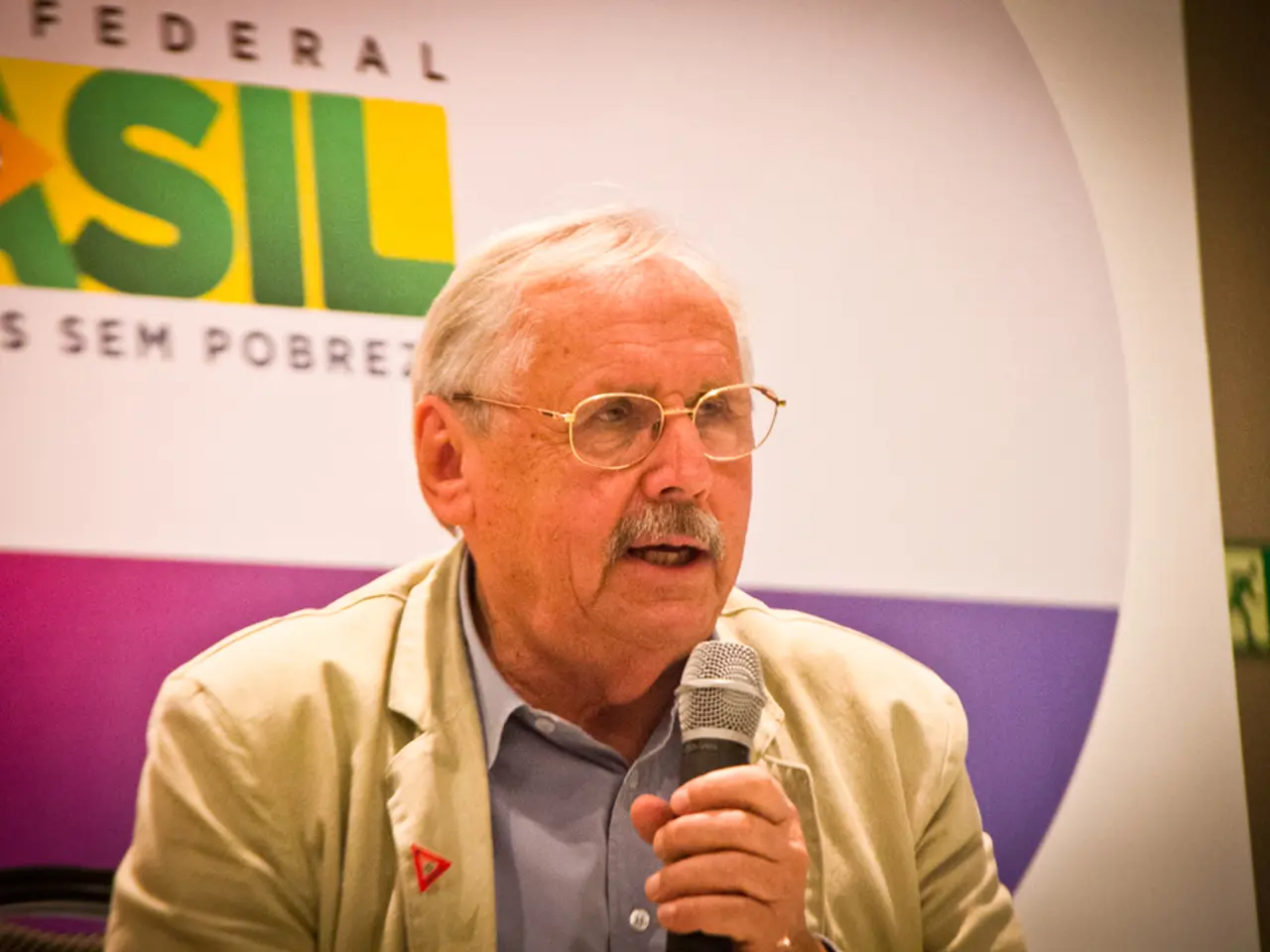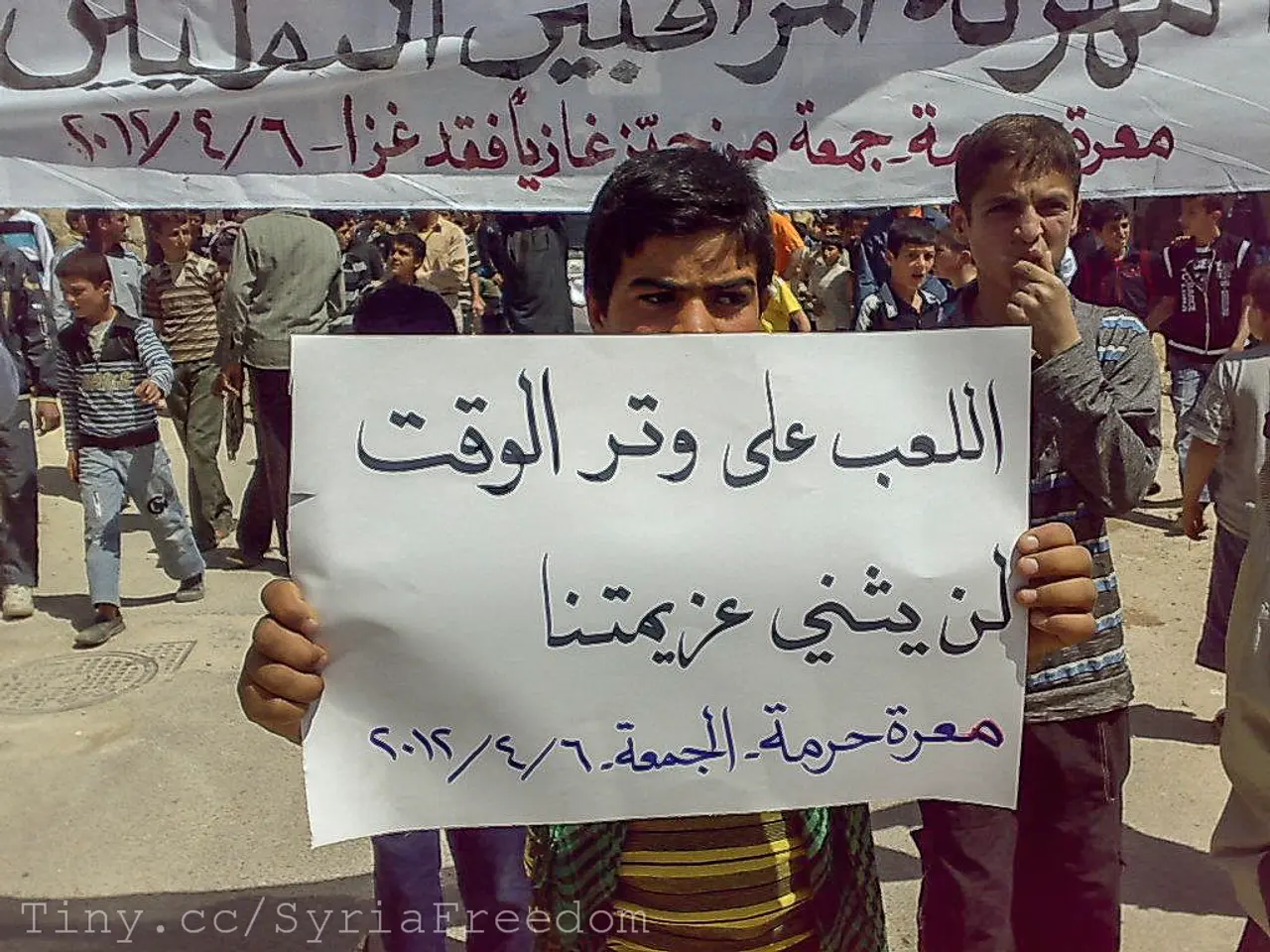Appellate Court Upholds Restriction on Unselective Searches of Migrants within EU; Government Accuses It of Impeding Immigration Legislation
In a significant development, a federal judge has ordered the Trump administration to halt indiscriminate immigration stops and arrests in seven California counties, including Los Angeles. This decision followed a lawsuit filed by immigrant advocacy groups accusing the administration of systematically targeting people of color during its immigration crackdown in Southern California.
The lawsuit, which includes detained immigrants and U.S. citizens affected by these practices, alleges that the federal government has been using racial profiling and other discriminatory tactics in its enforcement efforts. The plaintiffs argue that these practices violate the Constitution and infringe upon the rights of individuals.
The Ninth Circuit Court of Appeals has also ruled in favor of maintaining a temporary order that prevents the federal government from conducting indiscriminate detentions and arrests in southern California. This order was in response to a hearing where the federal government asked the court to revoke a temporary restraining order issued by Judge Maame E. Frimpong.
Judge Jennifer Sung questioned the government's arguments, stating that the factors used for profiling, such as race, language, presence in a place, and occupation, do not meet the standard of reasonable suspicion to detain someone. Judge Frimpong's order noted a "mountain of evidence" that federal immigration enforcement tactics violate the Constitution.
Jacob Roth, the attorney for the plaintiffs, stated that it is serious to assert that multiple federal government agencies have a policy of violating the Constitution. Roth argued that the lower court's order was too broad and that pro-immigration activists did not present sufficient evidence to show that the government had an official policy of detaining people without reasonable suspicion.
Meanwhile, separate legal actions are underway involving members of Congress suing the Trump-Vance administration for obstructing lawful congressional oversight of federal immigration detention facilities. These Members of Congress have challenged policies requiring a seven-day waiting period and prohibiting access to detention field offices, which they argue violates federal law guaranteeing their oversight rights.
Los Angeles Mayor Karen Bass described the decision as a "victory for the rule of law" and said the city would protect residents from "racial discrimination and other illegal tactics" used by federal agents. Mohammad Tajsar, an attorney for the American Civil Liberties Union, stated in court that the government's actions could result in U.S. citizens being detained, pushed against a fence, and having their phone and identification taken away.
The ruling comes as a relief for the residents of Southern California, who have been living under the constant fear of indiscriminate immigration stops and arrests. The federal government argued that it had not had enough time to gather and present evidence, as the lawsuit was filed just before the July 4th holiday and the hearing took place the following week. However, the court's decision indicates a strong stance against discriminatory practices in immigration enforcement.
As of July 31, 2025, no public update beyond this ruling has been reported, so the final resolution or subsequent developments are not yet known.
The plaintiffs in the lawsuit believe that the federal government's use of racial profiling and discriminatory tactics in immigration enforcement violates the Constitution and infringes upon the rights of individuals. The Ninth Circuit Court of Appeals has supported this claim by maintaining a temporary order that prevents the federal government from conducting indiscriminate detentions and arrests in southern California.
The ruling in favor of halting indiscriminate immigration stops and arrests in California, specifically in Los Angeles, has been celebrated as a victory for the rule of law by Mayor Karen Bass and pro-immigration activists, who argue that these practices are discriminatory and illegal.






